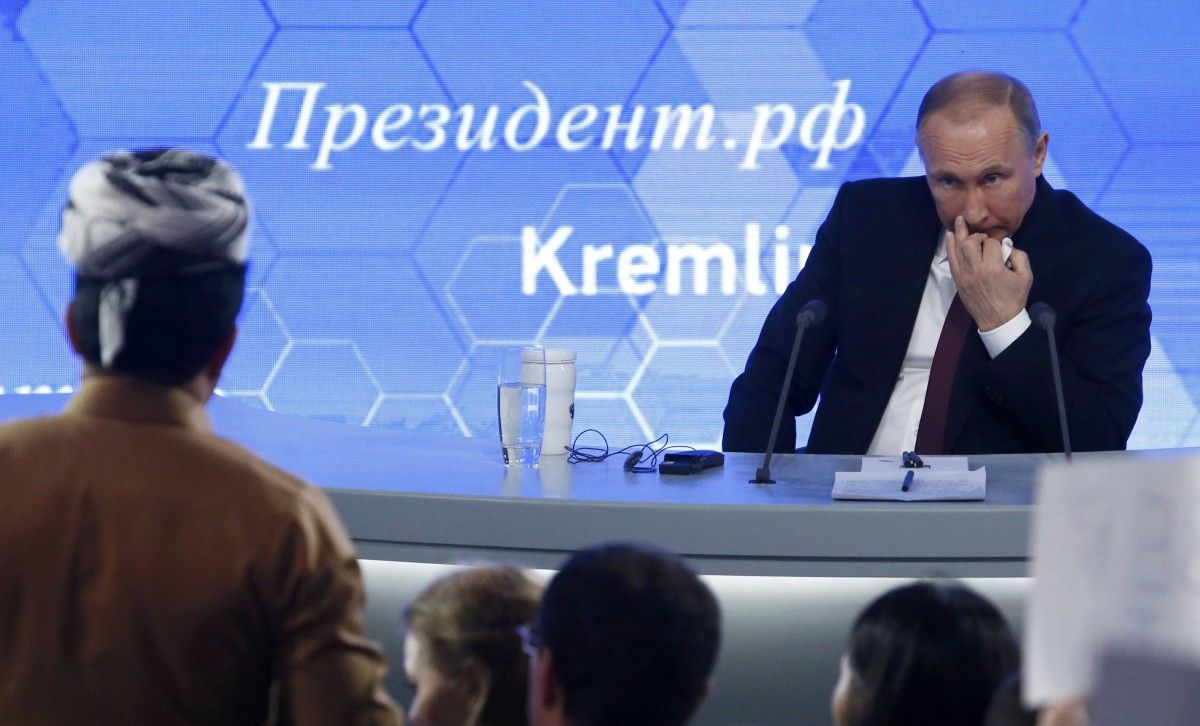
Ukrainian interest. Putin’s expectations, ambassadorial address, and frozen Donbas
Vladimir Putin is all into demonstrating how eagerly he has been waiting for U.S. President-elect Donald Trump to take up post. U.S. and EU ambassadors to Ukraine gave the country’s diplomats a bit of an important advice on their professional holiday. The Donbas crisis is far from settlement.
A meticulously prepared annual press conference of Vladimir Putin is not just the main Russian media event of the year, but also a litmus test of the Kremlin master’s attitudes. For example, this time he chose not to focus much on the Ukrainian issue, limiting himself to traditional statements in his usual manner. He has said he is not going to recognize Russia's responsibility for what is happening in Ukraine, recognized the need to continue the talks in the Normandy format, and, for the reasons far from obvious, publicly expressed hope for normalization of Russian-Ukrainian relations. Putin hardly paid any attention to the extraordinary incident - the murder in Turkey of Russian Ambassador Andrei Karlov, whose funeral was the reason to shift his presser. However, this does not negate the fact that the public execution of Ambassador Karlov in Ankara could be a harbinger of further terrorist attacks against Russian citizens triggered by Russia’s participation in Assad regaining control over Aleppo.
Many experts have noted signs of Putin’s inaction, which, in fact, has a logical explanation. Russia makes no attempts to hide its deep satisfaction over the victory of Donald Trump, and it is now waiting for his inauguration in order to put forward a number of tempting geopolitical offers. Until that time, Russia remains overly restrained, with the only active foreign political move to be intensifying dialogue with Turkey and Iran on the issue of Syria settlement. After the Syrian government forces regained control over Aleppo, backed by the Russian airforces, the conflict there can reach another level.
Summing up the results of the Ukrainian diplomacy along with the Institute of World Policy, senior Western diplomats have made a number of significant statements. Marie Yovanovitch believes that the Russian hybrid warfare against Ukraine has been lasting for 25 years, having started right after the proclamation of independence. The U.S. Ambassador to Ukraine stressed not only the bipartisan consensus on assistance to Ukraine, at the same time noting the need for the official Kyiv to strengthen strategic communications and create an effective narrative. Head of the EU Delegation to Ukraine Hugues Mingarelli noted that our country should not be associated only with the war in Donbas, the Chornobyl disaster, and corruption. According to the European diplomat, the full-fledged entry of the Ukrainian economy into the European market will help resolve many of Ukraine’s problems.
Meanwhile, the European Union once again experienced the problem of terrorism: a lorry driven by a Tunisian national crashed into a festive crowd at a Christmas fair in Berlin. A citizen of Ukraine is confirmed to be one of the victims of the Berlin carnage. This terrorist attack, among other things, looks as it was directed against the authority of Angela Merkel, who is not only the most influential European figure but also the most popular German politician. Apparently, in the near future the EU leaders will not only have to confront the terrorist threat but also to shy away from Vladimir Putin's persistent proposals to do this together.
Meanwhile, the situation in Donbas casts doubt on the possibility of the implementation of the Minsk agreements, which were prolonged until the end of 2016. However, the latest actions of Russian-backed militants and the rhetoric of Russian reps does not allow to count on any effective settlement of the conflict that has already become a problem for the whole Europe. Russia is taking a pause, waiting for a more favorable foreign political environment, while Ukraine is boosting defenses, and the representatives of Germany and France are being forced to use the momentum of the negotiation process to save face.
Yevgeny Magda

